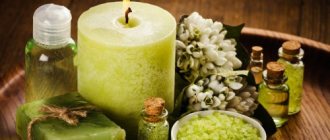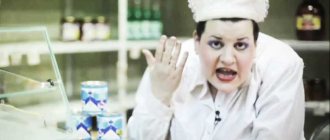In an era of ubiquitous chemistry, consumers are increasingly turning to organic products that are made from naturally occurring ingredients. Thus, starting a business related to the production of herbal cosmetics without artificial additives can be the key to an excellent company.
Contents:
- Business idea: Natural cosmetics production company
- Target audience of natural cosmetics
- Business production of natural cosmetics - where to produce?
- Cosmetics certification
- Is it worth it to produce natural cosmetics?
Natural cosmetics, produced according to a unique recipe that does not contain harmful substances and other chemical ingredients, are desirable products in the cosmetics market. The fashion for natural, organic products appeared several years ago, when consumers began to better understand their health, lifestyle, and care about nature.
In the US, the natural cosmetics market is valued at $40 billion.
Where to start a business producing natural cosmetics? Where to sell cosmetics and where to get recipes for them? What equipment will entrepreneurs need to develop a natural cosmetics business ?
Family business
While studying at the institute, I worked at a business magazine and always read stories of entrepreneurs with interest. Even then I wanted to open my own business, but I didn’t understand in what area it would be better to do it. After a while, circumstances arose that provided clues to all the questions. While on maternity leave, I began looking for safe detergents and natural cosmetics. But eight years ago there was nothing on store shelves that would satisfy me in terms of quality. Then I thought that probably many mothers who care about the health of their children would also like to buy natural cosmetics. This is how the idea arose to create a production facility to produce eco-cosmetics and safe natural detergents.
I began to dive deeply into studying this topic. If you do not have a chemical education, then it is quite difficult to understand what the cosmetics we see on store shelves actually consist of. Therefore, I spent a year and a half visiting specialized cosmetic exhibitions, meeting specialists and finding a development team.
My parents supported my business idea. Dad invested start-up funds in this business and, since I had a small child in my arms at the time, my mother took over the management of the company, and I was left with the task of managing the production department.
Natural and effective
Our initial goal was to create effective cosmetics. Making simply natural cosmetics is not difficult, but producing natural cosmetics that will give an effect like chemical ones in eight applications, nourish the skin with vitamins and microelements through extracts and at the same time maintain the result is an art. That's why we value our development specialists very much. Of course, I delve into every process. I know the properties of extracts, I like to hold aroma clubs where we talk about the properties of essential oils. But developing a natural and at the same time effective product is a very difficult project. Therefore, if you try to fully understand this, you will have no time left to manage the company, marketing or sales will begin to stall.
It was enough for me to figure out what components I would like to have in my compositions so that they would be understandable to the consumer. Otherwise, a team of specialists helps me a lot; they are well versed in the components, proportions and features of their use. All formulas of products under our brand are created in a foreign laboratory. But we work with a Russian herbalist who recommends Russian extracts to us. And essential oils are suggested to us by an aromatherapist, who in the laboratory studies the proportions and necessary concentrations of oils to effectively solve specific problems.
Certification of cosmetic creams
As for the conditions of storage, transportation of creams, as well as the safety of their use, all of them must meet the requirements of the technical regulations of the Customs Union TR CU 009/2011 (Safety of perfumery and cosmetic products).
In accordance with this document, either state registration or declaration can be carried out in relation to creams. Moreover, in this case, the exclusion method applies - if the product is included in the list of products subject to obtaining a certificate of state registration, then filing a declaration is no longer required.
Search for alternatives
As a manager, I take part in every project - both in design and product development. I go to exhibitions, look at the raw materials, and then recommend the ingredients we like that suit our criteria and composition.
We work with different, but highly effective raw materials - in total about 60 types of vegetable oils and almost the same number of types of essential oils. Some oils have to be purchased in tons, others in kilograms, for example, cranberry oil. Each formula requires individual work and analysis. We purchase extracts from certain manufacturers in order to control what the raw materials are obtained from, how they grow, and what processing technologies are used. Because some manufacturers produce extracts using chemical raw materials, which is unacceptable for us.
You have to work with some suppliers on exclusive terms. For example, in the production of shampoos we use cherry tree extract, due to which the shampoo foams and gently cleanses the hair. This is a non-standard surfactant that can only be offered by one manufacturer. And this is a very high risk for the manufacturer. If the supplier had some trouble (the plantation was flooded with rain) - and the raw materials no longer meet the specifications. Therefore, it is always important to have alternative options. We have already found three alternatives for each raw material. If there is no bird cherry, then we will use magnolia extract or proteins that have foaming properties.
Documents required for cosmetics certification
To quickly obtain the desired certificate, you must provide a complete package of documents, which includes:
- application;
- constituent documents;
- information about the quantity of the product, the nature of its origin, its name, and so on;
- production technology (if the fish is grown in an artificial environment);
- information about previously issued certificates (if any).
This is a basic set of documents that can be expanded. It is necessary to clarify with the certification center employee what will need to be provided in a particular case.
That is, certification of cosmetics is not always mandatory, but many manufacturers and suppliers receive a document confirming the quality of the product. This allows you to increase profits and expand the sales market.
Myths and realities of the cosmetics market
The cosmetics market is full of myths. In part, the birth of these myths is facilitated by the manufacturers themselves, who mislead consumers by resorting to so-called greenwashing in order to create a “green image.” For example, when promoting cosmetics from France, a manufacturer may simply create the illusion that it is natural, from Provence, although without directly stating that it is natural.
But consumers, oddly enough, want to be deceived. Once at one of the Wildlife Foundation events, those present were asked how many of them would want to buy healthy products if they cost 10% more than usual. 80% of the audience raised their hands, thereby declaring that they want to use natural, high-quality, safe products. Then they were asked another question: who will use such products if they cost 20-30-40% more? The number of people willing decreased as the price of the product increased. At the same time, you need to understand that the audience came to a specialized event prepared, that is, they understand what eco- and bio-are.
As a manufacturer, I understand that everyone wants to use environmentally friendly products, but in fact only 20% do this. And often, when buying a brand, people believe that it is natural because the manufacturer tells them so. The consumer himself does not want to understand the composition of the funds; he does not need the truth.
Today, the cosmetics market is full of small workshops that claim to make natural cosmetics. This may be true, but many questions arise with the safety of the products they produce. To engage in the production of cosmetic products, you need to take into account technical regulations. Products must meet certain criteria, so the entrepreneur must obtain a declaration of conformity or certify the product. In addition, the enterprise must implement certain business processes for checking raw materials and packaging. A laboratory for quality control is also required. The lifespan of the product is also determined by laboratory methods. In a word, in the cosmetics business there are a lot of pitfalls and details that the manufacturer must take into account.
The unprofessional approach of start-up companies is very striking. For example, you can often see a warning on a jar of cream: “after opening, store the product in the refrigerator.” This means that if the consumer forgets about this or simply does not read the instructions, he will be using a spoiled product because the manufacturer did not check the product's lifespan after three months, for example. But when entering the market, he must guarantee the safety of his products. There are requirements for storing cosmetics - at temperatures from 10 to 24 degrees, and no refrigerator is needed for this. I believe that it is better for cosmetics to be preserved with strong preservatives, but they are harmless to the client from the point of view of microbiological and organoleptic safety.
The requirements for cosmetics are even more stringent than for food products. Cosmetics must last a long time; it is a complex product in which different components can interact chemically. Therefore, entrepreneurs who decide to create such a business must, from the point of view of the law, foresee and work out all these issues - what and how to comply with, and prepare production in advance.
Today, the natural cosmetics market is very small - only 2%. And when you invest a lot in marketing and advertising, there is no guarantee that it will pay off. And many young companies often end up in the red, believing that their business is production, and someone else will handle sales. While the cosmetics market requires a high-quality approach to sales: you need an understanding of where and how you will sell, and what communication strategy to use. For a business to succeed, and a manufacturing business is especially complex, you need to foresee everything at the initial stage, calculate the risks, and think through a business plan. Sometimes there is no point in even looking at what competitors are doing, because competitors often make mistakes too.
We, as a family company, do not strive to compete with other brands at all, but want to develop our brand with the profit that suits us and with the turnover that is acceptable to us. Of course, we have plans for further growth, but our goal is not to capture a large market share at any cost. Our advantage is precisely that we can even afford to reduce the share of profits if necessary to maintain the company's mission. And we definitely don’t need to try to be everywhere for the sake of our image - we are present only in the right places. We can work efficiently with both wholesalers (stores) and retail clients.
Scrubs: products with a quick effect
Scrubs have the fastest effect on the skin. They consist of a liquid emulsion and abrasive particles and serve to improve blood microcirculation and cleanse the body. Help restore freshness and natural radiance to the skin. All women know this.
Grape or apricot seeds of different fractions, coffee beans, sea salt, sugar and even cereals can be used to produce scrubs.
The production of scrubs and gels for the face and body will help diversify the assortment. You can also offer consumers a natural scrub against cellulite (the problem is acute for many of the fair sex, and they simply need a miracle cure).
You may be interested in: Opening a hostel - hotel business with minimal investment
The main thing is the formula
There is an opinion that the cosmetics market is based on new products, that is, it is necessary to launch new products on the market as often as possible, since consumers want variety in the assortment. But personally, I think that it’s not worth betting on new products, because I see this as a sign of business instability: if a company grows only due to new products, it means that old products are not in great demand.
Many of our products have been around since the company's inception. And so far we release no more than six titles a year. It takes us six months to develop one product before entering the market, because any of our products involves painstaking work on each formula.
Bringing a new product to market is no easy task. It is necessary to analyze the situation in advance to understand what the demand will be. Considering that in Russia only 2% of people choose organic cosmetics, you need to be aware that the capacity of your market is very small. And if you release a product that even 20% of your customers will like, then such a product is unprofitable from a development point of view. We develop only what at least 50% of our clients will use. These should be some products from the must-have category, highly effective products with which the buyer will definitely be satisfied and want to recommend them to friends. If you don't spend a lot of money on advertising, it's up to people to talk about your products. That's why we invest more in developing the formula rather than in new products.
Target audience of natural cosmetics
These are mainly women aged 40 to 60 years. Your target consumer of natural cosmetics plays sports, buys only fresh vegetables, and purchases cosmetics from small and trusted manufacturers.
The buyer of natural cosmetics will be not only lovers of ecology and environmental protection, but, above all, allergy sufferers, patients with problem skin, etc. The target audience of natural cosmetics does not use standard cosmetics due to fear of skin or other symptoms. In addition, natural cosmetics are fashionable.
Young people are conscious consumers, often looking for organic products and are willing to pay more for them, given their uniqueness and higher quality .
Subtleties of production
From the very beginning, we were faced with the problem of finding suitable premises for production. After all, the site must meet a number of criteria and requirements: be clean, have convenient access, communications and much more. We have many hangars for furniture makers in our region. But for pure production it is extremely difficult to find premises for rent.
In the first years, our company grew very quickly. If seven years ago we had a small production facility the size of a laboratory (30 sq. m), now it is an area of 1,300 sq. m. m. But we both at the beginning and currently rent the premises. And now, having experience, I can say that if a company is focused on growth, then it is better to rent premises than to buy them - so as not to be tied to a small premises and not limit yourself in the rate of growth and simply save money for more important expenses, because At the initial stage, the costs are already very high. The same goes for equipment: if you can do without something, you shouldn’t buy it. If you optimally allocate funds and control expenses, you will save yourself from many problems.
In general, production history greatly depends on how competently and at the same time quickly you do everything. For example, we launched a line of products for several years, thereby allowing three competitors to enter the market with their products. Moreover, this only happened because of my message - after talking with me, people launched environmentally friendly household chemicals and did it much faster than me.
As for the start-up capital, in the cosmetics industry it is 10 million rubles. – this is the minimum amount required to prepare the premises, purchase recipes, certification, and purchase the necessary equipment. Of course, you can get by with less money, but then you need to be prepared for the fact that you will have to work a lot.
If you build business processes wisely, the starting capital is 10 million rubles. can pay for itself in 18 months. I initially had 20,000 rubles. for raw materials, the parents also invested 600,000 rubles, the payback was about two years.
Now, when I am invited as a speaker to business conferences, I say that without money it is better not to mess with production history.
What is cosmetic certification
This is the process of checking the quality of a product against the requirements that apply to it. To obtain a certificate or declaration, you must go through several stages:
- fill out an application;
- submit the required package of documents;
- provide a sample of the product;
- wait for the result of the laboratory analysis;
- receive a certificate.
These are mandatory steps that cannot be skipped. You only need to contact an accredited certification center. On the website of the Russian Accreditation Agency you can obtain information about which companies have the right to issue certificates and declarations.
Unusual strategy
We initially had difficulties entering Moscow, where the cosmetics market was mainly occupied by some organic foreign brands. We were told: first get foreign organic certificates, then we’ll talk. Therefore, we began to enter the capital’s market not through stores, but through retail clients: we participated in events, introduced clients to our brand, after which they went to stores and said that they wanted to see MiKo products on the shelf. After this, the wholesalers themselves contacted us and offered cooperation. This is how we entered the Moscow market in an unconventional way.
Then we realized that we were making a mistake by targeting retail customers who only generated a small amount of sales, and that our job as a manufacturer was to make B2B sales. Therefore, we reoriented ourselves and began to develop a wholesale direction through distributors. Now, if possible, we always transfer retail customers to our distributor. We also often transfer orders from our online store to our regional partners.
We are currently preparing to obtain international organic certification and are interested in how having certification will affect sales. There are plans to certify six products without essential oils from the “Chic” series for pregnant women and children. Why did we choose these products? Because we introduce this line to the consumer first, since not everyone who is just trying to use natural cosmetics likes the smell of essential oils.
In our case, it does not make sense to certify all products, since in production we use generally the same ingredients in one series and in another. Thus, by certifying some products, we thereby confirm that, in general, all our cosmetics truly correspond to organic quality.
As for production, we are now preparing documents according to ISO 14000, this is certification of production compliance with environmental criteria.
We want to improve our own work. There are areas in which a number of problems need to be eliminated - PR, marketing, brand awareness. In the near future, we will also strive to bring new products to market faster. But the main tasks are still certification, growth and modernization of production, entering new markets and related industries where our products may be in demand.
Certificate or declaration for soap?
Soap, like any other hygiene product, must undergo a procedure for checking compliance with quality and safety standards. In this case, the controlling document is the regulation TR CU 009/2011 On the safety of perfumery and cosmetic products.
In accordance with it, issuing a voluntary or mandatory certificate is not required - it is enough to obtain a declaration of conformity or a certificate of state registration. However, no one can prohibit receiving a voluntary GOST certificate for shampoo, so manufacturers often issue a GOST certificate in addition to the CU TR declaration. this will increase confidence in the product and serve as an additional guarantee against low-quality soap.
When classifying soap, attention is paid to such important factors as composition, purpose, and release form. Products for children or for adults are also taken into account. For children's soap, it is necessary to issue a State Registration Registration Certificate, but for ordinary soap, a declaration is sufficient.
Handmade soap prepared at home does not differ in any way in terms of certification from soap produced in factories. Here you also need to obtain a declaration or certificate for handmade soap, the only thing is that the place of production must comply with all sanitary, fire and other standards provided for when organizing soap production.
SGR for handmade soap must also be obtained if it is children's soap.







